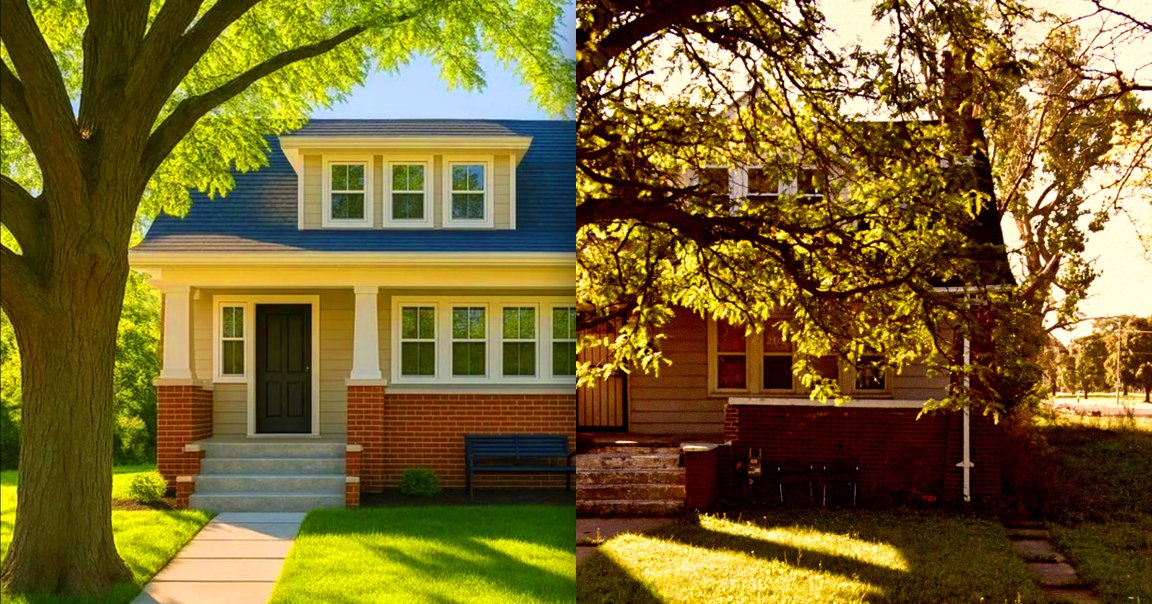
In the age of generative AI, not all is what it seems.
From photorealistic videos of OpenAI CEO Sam Altman’s head grotesquely poking out of a toilet to AI chatbots that can blaze through a Turing Test without raising suspicion, it’s never been harder to distinguish between reality and a fiction dreamed up by an AI.
Still, some instances of AI use still stand out like a sore thumb. Take, for instance, this Zillow listing for a single-family rental home in Detroit, Michigan.
A horribly mangled AI rendition shows the two-story building in a far-too-flattering light. As artist DeAnn Wiley quickly sleuthed out, reality — as seen in Google Street View — couldn’t be more different.
The AI-yassified version of the house is smoothed over to a ridiculous degree, is missing a concrete footpath, misplaces entire trees, and even features an entirely different roofline — a galling example of real estate and staging companies using AI to lure in customers.
“The building structure is completely different,” Wiley argued.
“This is crazy,” another user commented. “We live in an era of house catfishing.”
Heavily edited images of the house’s interior, which are arguably more important to prospective renters than the house’s curb appeal, don’t fare much better. The images feature nonsensically shaped carpets, among other AI atrocities.
“So I’m noticing, as I look at houses to rent, that landlords are using AI to stage the pictures but the AI is also cleaning up the walls, paint, windows, and stuff in the process,” Wiley tweeted, “so when you go look in person, it looks way more worn and torn than the pics would show.”
We’ve already come across plenty of other real estate listings with suspiciously rendered images. One listing for a fully renovated 3-bedroom in the UK, as spotted by The Register earlier this year, included awnings that don’t line up and hedges that inexplicably turn into walls.
Virtual staging, or digitally filling rooms with virtual furniture after the fact, has been around for quite some time. However, generative AI has taken the trend to an outrageous conclusion, prompting a heated discussion about whether landlords and real estate agents are misleading the public and potentially even committing fraud.
Despite catfishing prospective renters and buyers with misleading pictures, the trend has spawned an entire cottage industry of companies capitalizing on services aimed at landlords and sellers.
One company, called Interior AI, offers a service that can transform pictures of interior spaces “completely.”
“Instantly redesign, furnish, reimagine any home interior, exterior or garden,” the company’s website reads.
In most cases, owners and managers are the ones who benefit from using AI in their listings. Renters, already frustrated with an often highly competitive market, are the ones missing out.
At best, prospective buyers could be tricked into wasting their time by realizing too late that they were hoodwinked by an overly imaginative AI while touring the property. At worst, renters who signed a lease sight unseen could be in for a rude awakening.
More on AI listings: Realtors Are Using AI Images of Homes They’re Selling. Comparing Them to the Real Thing Will Make You Mad as Hell